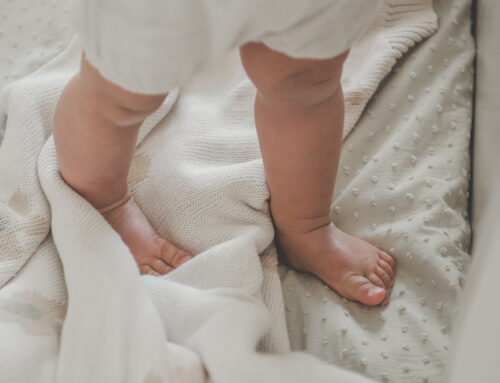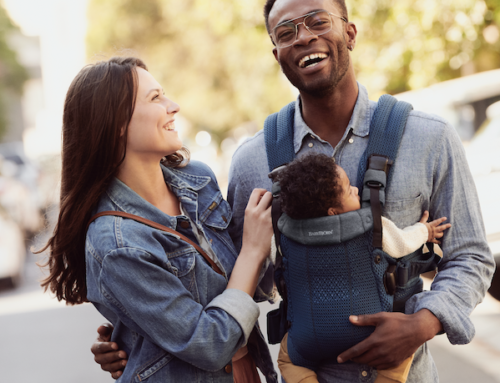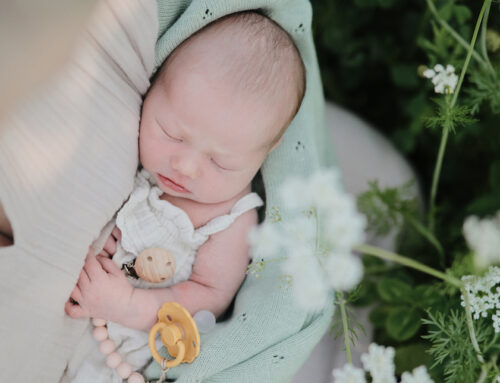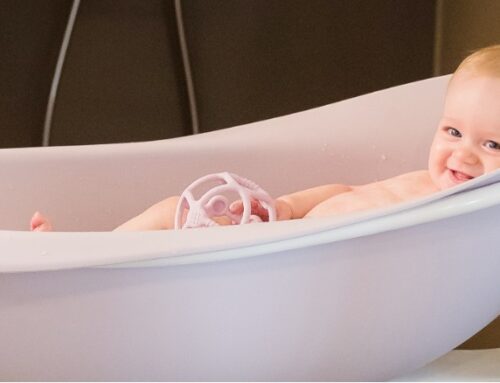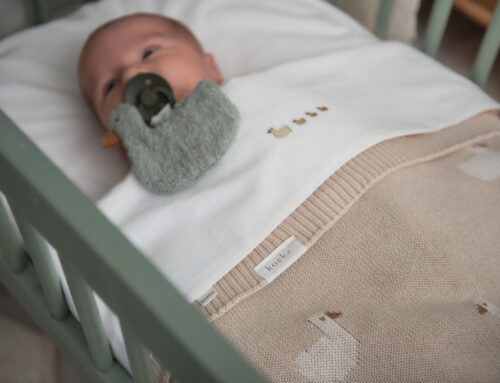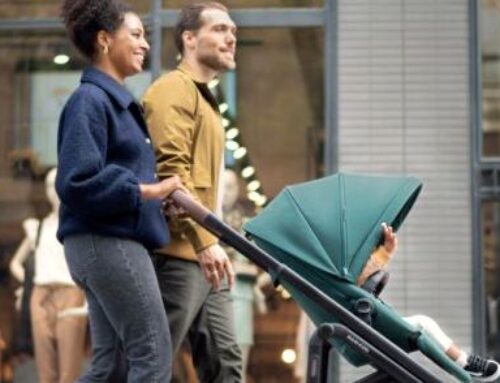Looking at the clothing label to see if its origin is stated, doing the shopping with as little packaging as possible, looking for alternatives for energy, using washable diapers. More and more consumers are concerned with sustainability and buying green products. Is the trade responding sufficiently to this?
Sustainability: more than sustainable materials
Sustainability goes far beyond the use of sustainable materials such as PET bottles and organic cotton that are used in fabrics, or planting a tree at the birth of a child and reusing packaging material. We are increasingly seeing new initiatives coming onto the market that relate to second-hand trading, leasing or exchanging. Instead of buying and owning products, a sharing economy is gradually emerging. Certain categories of baby articles, with their short use time, are also very suitable for leasing and reuse. Therefore, below, to inspire sustainable initiatives and interviews with sustainable entrepreneurs in our market.
Second hand fairs in Belgium
Second-hand trade fairs, such as those held in Belgium by the Gezinsbond (organisation representing families), are held on a regular basis. Volunteers from almost 900 local groups annually organise 850 family fairs in Flanders and Brussels, says Kurt Jacobs of the Gezinsbond.be. Not only are families being helped to save on their family budget and is it a meeting place between families and generations, but one of the goals is also to work towards a more sustainable world.
Get some children’s clothes
Outgrown children’s clothing? Since 2012, consumers have been able to use this site to exchange children’s items that are too small for a package that suits the current age of their children. From children’s clothing, toys, books, accessories for the children’s room, but also strollers, car seats and playpens.
Because the voluntary organisation noticed that consumers would like to see the products for a moment, it was decided in 2014 to organise various exchange points in the country. Krijgdekleertjes.nl
Babytheek (Babytheque): making sustainable baby equipment accessible to the general public
Another good example of a sustainable economy is the Babytheque in Belgium. Used baby equipment is not thrown away but given a new lease of life. A membership is not only reserved for those on a tight budget, but the Babytheque is open to all young parents, grandparents and grandmothers, compound families, single people, rich or poor. Anyone can become a member of this library for baby equipment. The organization wants to offer a solution for people who live small. You borrow what you need and what is no longer needed can be returned. At the same time, people learn more about sharing products instead of owning things. And it’s a meeting place for young parents. babytheek.be
Wheely
A little shocked by all the stuff you have to buy when a child is born and the space it takes up, Piet Huige set up Wheely. You can conclude a lease contract with Wheely for a new or second-hand stroller. So far, that’s only possible for Greentom. Initially, only the frame with carrycot is sent, after six months the seat is sent free of charge and the customer can return the carrycot in the same packaging. gowheely.com
Leasing children’s furniture and wooden toys via Mr Beetle
Astrid Oversier is the founder of the rental platform Mr Beetle. Parents can rent children’s furniture and wooden toys here. The idea for this platform was born five years ago after the birth of her eldest son. ‘After 4 months my son slept in his own room and we put his cradle away. After six months, he didn’t fit into the Tummy Tub anymore. And after his first birthday we bought a child safety seat and the Maxi-Cosi was no longer needed. We put the Maxi-Cosi away and it was placed next to the box, the camp bed and the rocker because we didn’t need it anymore either. I didn’t realize during my pregnancy that we would only use a lot of these children’s items for such a short time “And certainly not that this stuff would be in my shed longer than it was being used.’
She’ll tell you how Mr. Beetle works. ‘Mr Beetle is an online rental platform where parents can rent children’s furniture and wooden toys. As soon as a child loses interest in the toy or the toy is no longer in line with his or her development, the articles can be sent back to Mr. Beetle. “All products are neatly cleaned and are returned to the assortment. She’s continues: In addition to the fact that renting is much more sustainable, it also offers other advantages. As a parent, you don’t have to spend any more time selling, giving away or taking away the old children’s items. It’s also nice and easy that you can return the stuff, so you have more (storage) space.’
Leasing baby equipment at BabyLoop
Ilse Habraken, founder of BabyLoop, investigated the concept of leasing baby equipment during her son’s leave. ‘Since you only need a large part of the baby equipment such as co-sleeper, baby’s nest, etc. for a short period of time, you can easily use your products several times, it costs a lot of money and we live in our Amsterdam apartment of 80m2 without any storage space for all the baby equipment, I knew that there had to be a smarter way to deal with this problem! And BabyLoop – the sustainable initiative to reuse baby products – was born. What I really like is that in BabyLoop I can express my passion for sustainability, innovation and entrepreneurship!’, says Ilse.
How BabyLoop works
She explains how her concept works: ‘BabyLoop leases baby products to families. By giving our products multiple lives, we ensure that our baby products are used optimally. If one item is used by more than one child, we believe we are contributing to a better world! If a product is no longer suitable for leasing, we will give it to a charity such as BecauseWeCarry or Stichting Bullenbank. The assortment consists of baby equipment that you use during the first year of your life and that takes up a lot of space (such as a playpen or bath) or is expensive to buy (co-sleeper and bouncer). We select products on the basis of quality and the use of sustainable materials.
It works as follows: Consumers select products they want to receive, new or refurbished, then schedule the delivery and receive it at home. After use, the products can be sent back to us. The products are thoroughly cleaned and checked and redirected to other families. Our revenue model is very simple: p (price) x q (quantity). The lease price for the baby products x the number of months you lease our products. The turnover covers the costs.’
Circle of Parents makes second-hand children’s clothing the standard
A year ago, three students David Soester, Julius van Dijk and Lucas van Straalen met in a study programme at the University of Amsterdam. ‘We talked about the idea of renting out football boots to children. We all played soccer and remembered very well that our parents always had to buy expensive, new soccer shoes because we had already grown out of our shoes. This could be a lot more durable and cheaper, we thought. But we discovered that the problem was much bigger, we kept hearing that parents were not satisfied with the current alternatives to buying or selling second-hand children’s clothing. More than a hundred interviews with parents later, we decided to create an online platform where parents can easily, quickly and safely buy and sell second-hand children’s clothing.’
Online platform for used clothing
Selling is easy, says David. ‘You can upload an item of clothing within one minute, take a picture, fill in information about the item and you’re done. Once another parent has decided to order your clothes, all you have to do is print out the shipping label and take the package to the post office.
Buying works exactly the way that parents are used to in a first-class webshop,’ says David. ‘Parents quickly find what they’re looking for through the filter system. In addition, a buyer is always sure of the quality of clothing on the platform. Partly because of the review system and our check, there is always a good offer on the website. Should something go wrong, the buyer will get his or her money back. Circle of Parents works with a commission model, which means that sellers give up 10% of the sales amount and buyers pay €2 service costs.’



